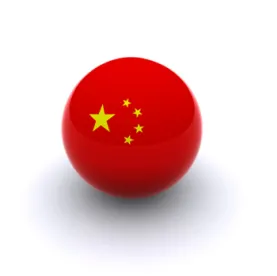As noted in the previous issue of International News, globalism has been replaced with nationalism in key jurisdictions, putting the globalised world order in question. As a result of Brexit, the Trump Administration’s protectionist policies, and China’s aggressive crackdown on capital flight, there are now greater uncertainties in the global transactions market. In fact, H1 2017 saw 12.2 per cent fewer deals than during the same period in the previous year.
The situation, however, is not quite what it seems. Despite this downturn, transaction value during H1 2017 actually grew by 27.8 per cent compared to the same period last year.
PROTECTIONISM AND THE TRUMP ADMINISTRATION
The Trump Administration’s policies to date have mainly targeted two of the three pillars of globalisation: the free flow of 1) goods and services (trade); and 2) people (immigration).
Given the Administration’s scrapping of the Trans-Pacific Partnership, stepping back from the Transatlantic Trade and Investment Partnership, and renegotiating the North American Free Trade Agreement, one would expect the third pillar of globalisation, the free flow of capital, to be next in the crosshairs. This is especially true given the high profile examples where this nationalist posture has held up cross-border deals, such as Ant Financial’s (China) takeover of MoneyGram (US).
Although this example suggests a negative outlook for cross-border M&A in the United States, international deal making is not doomed.
First, nationalist policies like trade protectionism and anti-immigration reform do not necessarily restrict crossborder deal flow. In fact, the opposite may be true as a World Bank study found that when trade protectionism increases, so does international investment.
Second, having domestic companies become more prominent internationally, through cross-border acquisitions, could be complementary to the Trump Administration’s nationalism.
The free flow of capital is likely to remain firm in US M&A markets.
Third, the Trump Administration’s probusiness agenda has created an optimistic outlook that is partially echoed in an alltime high stock market and the US dollar rallies, making US targets more expensive than their foreign counterparts. US buyers are therefore finding foreign targets more appealing, driving additional cross-border M&A (see the section on Germany below).
Indeed, outbound M&A deals from the United States topped US$ 114.1 billion in Q1 2017, more than a 100 per cent increase compared with Q1 2016.
Although changes to corporate tax rates, cash repatriation, and other cross-border adjustment taxes could significantly impact cross-border deal flow, cross-border M&A is unlikely to be hampered by the Trump Administration, as the free flow of capital should remain firm in US M&A markets.
GERMANY REAPS THE BENEFITS
H1 2017 saw Germany become the second most targeted country for acquisitions in Europe after the United Kingdom, both in terms of deal value and count. This is reflected by Germany’s 170 per cent rise in value of inbound activity when compared with the same period in 2016: €22.2 billion to €59.8 billion, a Mergermarket record for the country.
Inbound activity in Germany was boosted by several mega deals, including the €40.5 billion merger between US- based Praxair and the Germany-based technological group Linde, which accounted for 63.1 per cent of Germany’s total deal value. Even if this mega-merger is discounted, the inbound activity from American dealmakers still improved significantly, growing from €3 billion and 43 deals last year to €7.2 billion and 51 deals, an increase of 135.6 per cent.
These gains come despite the significant loss of Chinese investment and Germany’s introduction in July 2017 of additional protectionist regulations to limit foreign companies looking to acquire businesses in key sectors and technologies. The fact that Germany, currently one of the biggest beneficiaries of the reduction in globalisation, was willing to implement measures to curb foreign investment shows the extent of the paradigm shift that has taken place. Given the importance and quality of German manufacturing and industrial sectors, however, Chinese interest is likely to return, even if investors have to be more cautious when selecting potential targets.
Despite outbound activity dropping significantly in terms of value, the actual deal count stayed fairly level, indicating that German investors are still looking for opportunities abroad. This drop in value could be attributed to the weak Euro, which may have deterred German dealmakers from pursuing larger transactions outside the Eurozone.
With the return of solid economic growth, low interest rates, growing investor confidence, and a strengthening Euro, German outbound acquisitions are likely to increase and could make up for the thus far lacklustre deal value seen in 2017. Furthermore, as a result of Trump’s threats of protectionist legislation and the growing desire for products “Made in America”, German companies could look to strategically acquire US-based operations. Doing so would allow them to shift their production for the American market across the Atlantic in order to fulfil this criterion.
THE UNITED KINGDOM’S TRAJECTORY TOWARDS GREATER PROTECTIONISM
The over 10 per cent decline in the value of sterling in the immediate aftermath of the Brexit vote and the unparalleled
availability of cheap acquisition finance was expected by many commentators to lead to a wave of opportunistic takeover bids for underpriced UK targets. There is, however, little evidence that the devaluation of sterling had any effect as there has been a decline across the board, most dramatically in mid-market deals. It seems that company decision makers and M&A professionals are waiting for greater clarity before making M&A investment decisions.
It is, however, worth noting that the United Kingdom still remains the most targeted country for acquisitions in Europe, even if Germany is closing in. To deter the more egregious asset stripping of key parts of the economy, Prime Minister Theresa May has made her intentions clear: “A proper industrial strategy wouldn’t automatically stop the sale of British firms to foreign ones, but it should be capable of stepping in to defend a sector that is as important as [certain industries are] to Britain”
Such statements should, however, be seen in the context of the trajectory of UK Government policy over the last 10 years. Kraft’s takeover of UK confectioner Cadbury in 2010 led to significant changes to the Takeover Code, whose rules had previously favoured the rights of acquirers over those of UK targets. Additional changes requiring heightened disclosure of a buyer’s intentions for a target company were announced by the Takeover Panel in September this year, which will further put pressure on the buy-side in UK takeovers. Undoubtedly, these changes have led a reduction in public takeover activity in the UK market, with acquirers much less likely to engage in speculative activity.
Chinese interest is likely to return, even if investors have to be more cautious.
In October 2017, the UK Government released proposals to further increase its powers to intervene in proposed UK investments by foreign buyers on grounds of national security, broadening the scope beyond the traditional defense industries. The shift in policy is not party political as all the principal political parties in the United Kingdom are aligned with this evolving policy of greater state intervention and protection.
As far as Brexit is concerned, what is certain is that over the long term, regulations applying to large swathes of the UK economy will change as UK regulation gradually diverges from EU regulation. This will be most pronounced in the financial services, energy, life sciences and agricultural/ food sectors, where EU regulation is most concentrated. This flexibility away from EU regulation and the evolving regulatory environment is expected to lead to greater opportunities for cross border M&A in those sectors that benefit, and consolidation in those that will not.
Following Brexit, it is also expected that UK policy makers will develop domestic competition policy to protect or nurture sectors of strategic importance to the UK economy. This may lead to industries holding protected status, which will have both positive and negative implications for M&A activity. On a practical level, the United Kingdom is currently submerged within EU-wide merger thresholds and notifications are made to the EU Commission, with reference to the UK local competition authority voluntary.
Post-Brexit that is likely to change, with transactions involving a UK component subject to UK review. This may impact timetables, although the United Kingdom traditionally has an efficient competition review process.
THE FUTURE’S BRIGHT
The United Kingdom is fundamentally shifting away from globalisation towards a more nationalistic system. The Trump Administration has the clear ambition of curtailing free trade and immigration. And China is committed to limiting capital flight. These all sound like doors slamming shut, but windows are actually opening due to the high value of cross-border deals, the Trump Administration’s overall pro-business agenda, a dramatically increased interest in Germany, and the forthcoming changes to the UK regulatory landscape. The cross-border M&A market will continue to be strong for those who see opportunities behind the headlines.






 />i
/>i
